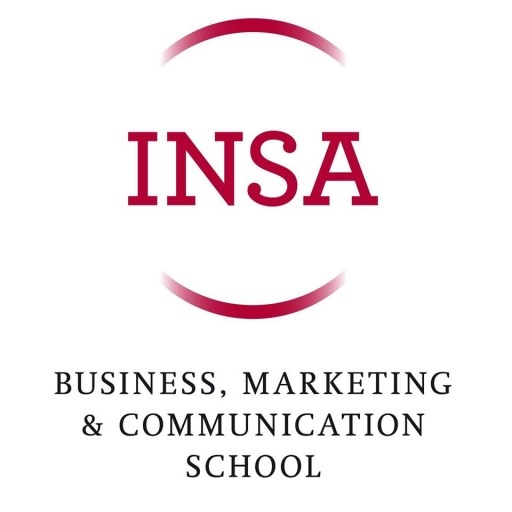Photos of university / #insabarcelona
The "Translation and Interpretation in Global Enterprises" program at INSA Business School is an innovative academic offering designed to equip students with the essential language skills, cultural competencies, and professional techniques necessary for success in international business environments. This comprehensive program combines rigorous language training with business strategy, intercultural communication, and practical translation and interpretation skills, preparing graduates to operate effectively across diverse cultural and linguistic contexts. Throughout the course, students engage with a variety of real-world case studies and participate in hands-on projects that simulate the challenges faced by translators and interpreters working within global corporations, diplomatic entities, and international organizations. The curriculum covers key areas such as advanced language comprehension, specialized terminology in various industries, translation technology, audiovisual translation, and simultaneous interpretation. Additionally, students learn about cross-cultural negotiation, intercultural management, and global business etiquette, providing them with a well-rounded understanding of the international corporate landscape. The program emphasizes practical experience through internships and collaborations with partner companies, fostering professional networks and easing transition into the workforce. Graduates of the program are prepared to pursue careers as professional translators, interpreters, language consultants, and communication specialists in multinational corporations, governmental agencies, and international NGOs. With a strong focus on both linguistic precision and cultural sensitivity, the program aims to develop highly skilled professionals capable of bridging language barriers and facilitating effective global communication, contributing to the success of enterprises operating in an increasingly interconnected world.
Modules
Level 4 / Year 1
- Economic & Financial Aspects of Business
- Organisational Behaviour and Analysis
- Principles of Marketing
- Quantitative Methods for Business Applications
Level 5 / Year 2
- Human Resources in Business
- Business Environment
- Marketing Research
- Option Module
Level 6 / Year 3
- Services Management
- Enterprise and Small Business
- Marketing Strategy and Planning
- Option Module
Program requirements for the Translation and Interpretation in Global Enterprises bachelor's degree at INSA Business School typically include the following: applicants must hold a high school diploma or equivalent qualification with a strong academic record. A proficiency in English is essential, usually demonstrated through standardized tests such as TOEFL or IELTS, with minimum scores expected to ensure adequate language skills for academic and professional communication. Additionally, proficiency in at least one other language, often a second or third language relevant to international business environments, is required; this can be proven through relevant language certifications or interviews conducted during the admission process. Candidates are generally expected to submit a completed application form along with a personal statement or motivation letter explaining their interest in global translation and interpretation, as well as their career aspirations. Letters of recommendation from teachers or professionals familiar with the applicant's language skills and academic abilities are also typically required. Some programs may conduct an interview, either in person or via video call, to assess communication skills and motivation. While prior experience in translation or interpretation is not always mandatory, it can strengthen the application. The admissions process may also include an aptitude test or written examination to evaluate the applicant’s language proficiency and aptitude for translation and interpretation tasks. Regarding technical requirements, applicants need access to a computer with internet connectivity and relevant software for language processing. Overall, candidates should demonstrate strong linguistic skills, cultural awareness, attention to detail, and motivation for working in international corporate environments.
The Financing studies of the Translation and Interpretation in Global Enterprises program at INSA Business School are designed to provide students with comprehensive financial information to support their educational journey. Tuition fees for this program are structured to be competitive within the industry, reflecting the high quality of education offered. The total cost typically includes tuition, registration fees, and various administrative charges. Prospective students can expect to pay an annual tuition fee that aligns with similar programs at INSA Business School, with updates communicated annually by the university.
Financial aid and scholarship opportunities are available to assist students in managing their educational expenses. These scholarships are awarded based on academic merit, financial need, or specific criteria related to the program or applicant background. INSA Business School also offers information about external funding sources, including government grants, private loans, and educational sponsorship programs, to ensure students can explore all available financial support options.
Payment plans are often customizable, allowing students to distribute payments across semesters or academic years to ease financial burdens. Moreover, the institution provides guidance and counseling on financial planning and management, helping students understand the costs involved and plan accordingly.
Additionally, some students may explore part-time work opportunities or internships facilitated by the school's industry connections, which can help offset living expenses and other costs associated with studying abroad or in a different city. The university promotes transparent communication regarding all costs involved, ensuring students can make informed decisions about their financial planning right from the start of their studies.
Overall, the financing options for the Translation and Interpretation in Global Enterprises program aim to make education accessible while maintaining the institution’s high standards. Detailed, up-to-date information on tuition, scholarships, and payment arrangements can be obtained directly from INSA Business School’s financial aid office or official website, ensuring prospective students have all the necessary data to evaluate their financial planning options effectively.
The Translation and Interpretation in Global Enterprises program at INSA Business School is designed to equip students with essential language skills, cross-cultural communication abilities, and specialized knowledge in translation and interpretation within international business contexts. The curriculum emphasizes not only mastering multiple languages but also understanding the nuances of intercultural communication that are critical for success in global enterprises. Students engage in rigorous language training, focusing on practical translation skills, consecutive and simultaneous interpretation techniques, and the use of translation technology tools. The program integrates modules on international business, intercultural competence, and industry-specific terminology to prepare graduates for careers in multinational companies, international organizations, diplomatic services, and translation agencies. Practical training is a key component, often involving internships and real-world projects, allowing students to apply their skills in authentic settings. Additionally, the program may include seminars and workshops led by industry professionals to expose students to current trends and challenges in translation and interpretation for global commerce. By completing this program, graduates are expected to be proficient in at least two foreign languages, with the ability to interpret complex business and technical content accurately and efficiently, facilitating effective communication across cultures. The program also aims to develop critical thinking, problem-solving skills, and adaptability, which are vital in the dynamic environment of international business. Overall, the program prioritizes comprehensive language mastery, specialized industry knowledge, and practical experience to prepare students for a successful career in the global marketplace.









